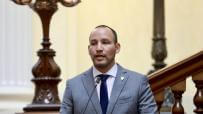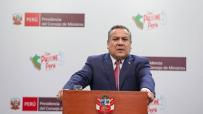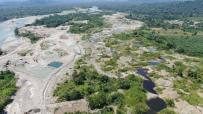
After the oil spill at the La Pampilla Refinery - operated by the multinational Repsol - the Peruvian authorities started a series of investigations against the company for the ecological disaster. What seemed to be a bad year for the Spanish company, based on the number of sanctions and fines imposed, was not so bad. A few weeks later, in February 2022, Russia invaded Ukraine and disrupted the global supply of fossil fuels. The price of oil increased and so did the revenues of all oil companies in the world. In Peru, Repsol's subsidiary increased its revenues by 73%.
In the midst of this boom in prices and in the oil business, the environmental catastrophe that impacted the Peruvian sea ecosystem and affected the family economy of hundreds of fishermen was not one of the central topics in the shareholders’ meetings of the oil company based in Spain. At the close of 2022, Repsol's parent company reported a 70% increase in profits over 2021.
OjoPúblico identified -after reviewing the agendas and public conversations of Repsol shareholders at the 2022 conferences- that the pollution from the 12,000 barrels of oil spill was not addressed as a significant event in the meetings for the first quarter of that year. Not even during the meeting of February 16, 2023, when the annual balance of 2022 was made, was the subject discussed. Emphasis was placed on "the good progress of the business".
In the same year of the spill and according to the financial reports, Repsol's parent company -with operations in Spain, Portugal, Peru, Italy and Mexico- had a variation in the number of significant shareholders (those who invest more money in the group), but this did not affect the investments because even one increased its capital.
BlackRock and a Norwegian Fund
Before the environmental disaster, the oil group reported five significant shareholders: BlackRock Inc. (5.12% stake), Amundi Asset Management S.A. (4.5%), Banco Santander S.A. (3.83%), Norges Bank (3.33%) and Sacyr S.A. (3.09%). These accounted for almost 20% of the investments.
At the end of 2022, Repsol reported only three significant shareholders: BlackRock (5.48%), Norges Bank (3.25%) and Amundi S.A. (3.20%).

SIGNIFICANT SHAREHOLDERS. BlackRock leads the shareholding in Repsol with 5.48%, followed by Norges Bank with 3.25% and Amundi with 3.20%.
Composition: OjoPúblico
When asked about this, Jim Sanchez, a researcher at Profundo Research & Advice -a research and advisory firm on sustainability issues based in the Netherlands- told OjoPúblico that "it is normal for shareholders to change [their stake] frequently, especially if they are institutional investors; that is to say if they are not in the same business [oil in this case], but invest in the company to take advantage of the dividends and the valuation of the shares", he explained.
BlackRock is the main shareholder of the Spanish oil company. It is considered the largest investment manager in the world and has participation in global brands such as Apple, Unilever, McDonald's, Adidas, Vivendi, Barclays, JP Morgan, BBVA, Santander, Bank of America, Citi, Credit Suisse, Deutsche Bank, Visa, Sanofi, General Electric, SAP, Telefónica.
The fund manager claims to be a driver of sustainable investments and is part of the Climate Action 100+, an investor-led initiative to ensure that the world's largest corporate greenhouse gas emitters act on climate change.
BlackRock, Repsol's main shareholder, is considered the largest investment management in the world.
In 2020 BlackRock announced that it would stop investing in projects with high sustainability risks. However, a year later, a report by environmental organizations Reclaim Finance and Urgewald revealed that the U.S. fund was still investing more than $85 billion in the fossil fuel industry.
During 2022, BlackRock increased its equity in Repsol: it went from 5.12% to 5.48%, reaching its highest level since they entered in 2010. At the end of 2022, its investment amounted to US$1.695 billion.
BlackRock also invests in other companies in the oil industry, such as Exxon Mobile, the British giant BP and the American Chevron.
Repsol's second largest shareholder is Norges Bank, Norway's central bank, which in addition to its traditional role, manages one of the world's largest sovereign wealth funds: the Government Pension Fund of Norway.
Norges Bank (Central Bank of Norway) is self-defined as one of the institutions most committed to sustainable investments. Last year, the fund withdrew investments from 74 companies due to their environmental, social, and corporate governance risks, according to its website. In the same vein, it excluded 13 companies from its list on the recommendation of its board of ethics.
The Norwegian bank has holdings in 9,000 companies worldwide, of which 213 in the energy sector in 37 countries, for a total of 38,348 million dollars, which represents 3% of its total investments. These include the oil companies Shell, Exxon Mobil, Chevron Corp, BP PLC, Reliance Industries Ltd., Schlumberger Ltd., Eni SPA, Petrobras and Enbridge Inc.
Repsol's third largest shareholder, according to Repsol's financial report to Spain's National Securities Market Commission (CNMV) –as of December 2022– is Amundi S.A., a subsidiary of Crédit Agricole (a French network of cooperative banks). It reduced its stake from 4.5% to 3.2%.
Amundi also points out that since it was established in 2010, it has had responsible investment as a fundamental pillar and management approach. In addition, in December 2021, shortly before the Repsol oil spill, the French fund launched its ESG Ambition Plan 2025. One of the fund’s main policies is the divestiture in companies whose operations in unconventional hydrocarbons represent more than 30% of its activity.
In 2021, shortly before the Repsol spill, Amundi launched a sustainable investment plan.
Among the shareholders that stopped investing in Repsol is the also Spanish Sacyr S.A., which in July 2022 and after 16 years sold all its participation. The construction company had been reducing its assets in recent years, in line with its Strategic Plan 2021-2025, due to corporate problems that had been going on for years.
Another Spanish company that ceased to be a significant shareholder of Repsol is Banco Santander S.A. The entity is still an investor, but with a stake of less than 5%.
Investors from the United States, UK and France
The fossil industry requires, as any other activity, fund-providers to sustain its operations. And in the case of Repsol, during the first months of 2022 -and after the oil spill in the Peruvian sea- a rearrangement of its main shareholders was reported, with BlackRock, Norges Bank and Amundi S.A. remaining as the main ones.
OjoPúblico had access to the detailed list of companies and banks that currently support -as investors or shareholders- the activity of the Spanish oil company. These include investment funds, pension funds and banks. Such capital is mainly concentrated in the United States, United Kingdom, and France.
At the end of 2022, Repsol received financing - through shares and bonds - from close to a thousand companies belonging to 450 economic groups. This number is greater than the 350 parent companies present in 2021.
An analysis carried out by Profundo Research & Advice to this list of investors also finds the U.S. The Vanguard Group, Invesco Ltd., Dimensional Fund Advisors and BMO Financial Group; the German National-Bank and the French Eleva Capital. These investments total 5,554 million dollars, equivalent to 62% of Repsol's capital.
The banks JP Morgan, Goldman Sachs, AXA, Scotiabank, BBVA and Mapfre are also worth noting, as well as the Norwegian Central Bank, which participates in Repsol with the Norwegian pension fund. There are 12 other pension funds that invest in the oil company.
These are mainly from the Netherlands: Algemeen Burgerlijk Pensioenfonds (ABP), Pensioenfonds Metaal en Techniek (PMT), Pensioenfonds Zorg en Welzijn (PFZW), Bedrijfstakpensioenfonds voor de Bouwnijverheid (Pension Fund for the Construction Industry), Pensioenfonds voor de Woningcorporaties (SPW) and Pensioenfonds Detailhandel (Retail Pension Fund).
The others are the Japanese Government Pension Investment Fund, the Japanese Association of Pension Funds for Local Government Officials, the South Korean National Pension Service, the Danish and Swedish fund managers. Japan and South Korea pension funds are also included.
According to Repsol's financial information, during 2022 there have been no new credits. However, until 2021, around 25 banks executed bond issuance, revolving credit line, share issuance and corporate loan, some of which are still in force for subsequent years.
Among the banks that financed these loans are Morgan Stanley, BBVA, Citigroup, Santander, Goldman Sachs, JPMorgan Chase, NatWest, La Caixa Group, BNP Paribas, and HSBC.
According to the parent company Repsol, its main current investors are in the United States (26.6%) and the United Kingdom (27.6%), followed by France (13.2%), the rest of Europe (12.5%), then Germany (5.6%) and Spain (6.7%).
The Spanish company states in its financial statements that in 2022 -in all its operations- it employed a capital of 28,229 million euros, mainly in exploration and production of fossil fuels. This amount is slightly lower than in 2021 when €28,556 million were available.
Repsol's shares are listed on the Spanish stock exchanges of Madrid, Barcelona, Bilbao, and Valencia.
Investments and Climate Crisis
Due to events related to environmental pollution (such as oil spills), the impact on the rights of indigenous communities and, above all, the climate crisis generated by the increase in global temperature, there are more and more commitments and tools promoting investments in environmentally responsible and low-emission businesses.
The Paris Agreement, signed in 2015 by 192 countries and the European Union, established goals to substantially reduce greenhouse gas emissions and refrain the global temperature increase to 1.5 °C. That implied that countries and the private sector - among them, the oil industry as the main polluters took on reduction commitments; however, the rise in oil prices changed the scenario.
For example, in 2019 the British oil company BP had initially committed to reduce its emissions and oil production by 40%. However, after the extraordinary profits reported during 2022, the company announced that they are now planning to reduce it to only 25% by 2030.
The former Vice Minister of Energy of the Ministry of Energy and Mines (MINEM), Pedro Gamio, pointed out that investments are prioritizing more environmentally sustainable businesses. "Not just any project is financed anymore, now there is a need for them to pass an environmental assessment", he explained.
Along these lines, the former General Director of Hydrocarbons of the Ministry of Energy and Mines (MINEM), Gustavo Navarro, explained that due to the climate crisis it is increasingly difficult to obtain financing for fossil fuels, as opposed to investments that support wind, solar, hydrogen, or geothermal projects.
Regarding the case of Repsol, the official pointed out that in this sector "the reputational issue is very important when it comes to financing". And he emphasized: "When a company has an episode of this type (an oil spill), many options are closed, especially financing ones. An example is the oil investment associated with the Amazon region. When worldwide banks see a development project in the Amazon, they get frightened; they associate it with these problems and rather not get involved", explained the specialist.
One of the most critical voices to the increase in the production of fossil fuels has been the Secretary General of the United Nations (UN), Antonio Guterres, who expressed his dissatisfaction this January during his participation in the World Economic Forum.
"Today, fossil fuel producers and their supporters continue to race to increase production, knowing fully well that this business model is incompatible with human survival," he expressed in Davos.
 Tienes reportajes guardados
Tienes reportajes guardados
















